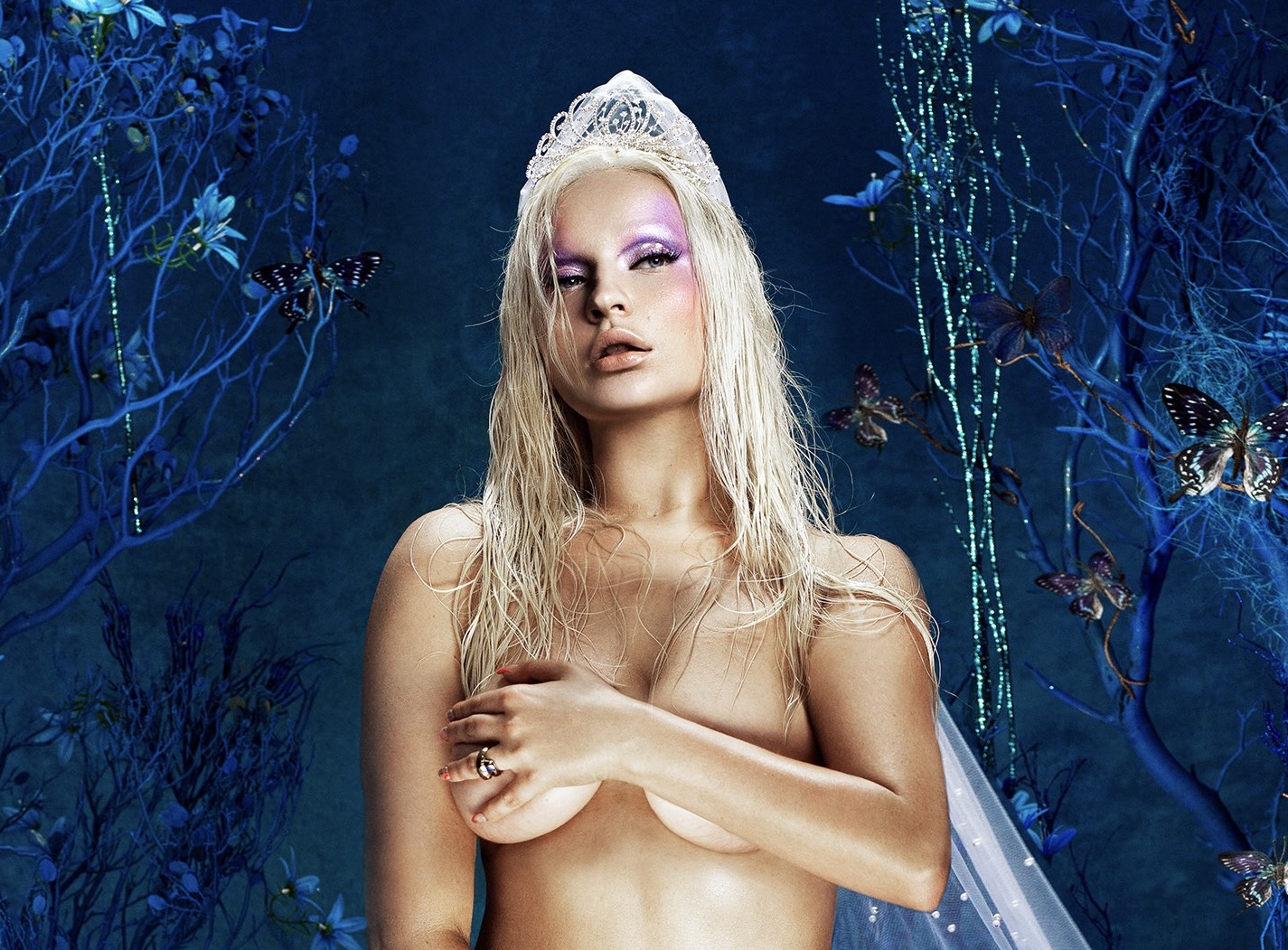Kim Petras is in her ascension era. Hot on the heels of her latest EP, Slut Pop, Petras is coming for our necks. After a slew of electric performances across the US last month, the trailblazing singer is set to headline this year’s Pride festival in New York City. To Petras – this is the come-up of a lifetime, and she couldn’t be more ready.
“I feel like New York is where my career started,” the 29-year-old shares with V. “That’s where my music was first played. So for me, it’s always special to play in New York. But headlining Pride is the next level–it’s like a fucking dream.”
Depending on who you talk to, Pride can take on many definitions. It can mean being free to be who you are, celebrating your friends and family, or being an ally to those in the LGBTQ+ community–and for Petras, it’s all of the above. Not confined to one definition, she cherishes each person’s unique interpretation of the month and its festivities. This Pride, Petras has a lot to be grateful for. During our conversation with Petras, she makes sure to acknowledge her family (and chosen family) that’s been supportive of her and her passions from the start: “Pride means celebrating the people in my life, who without them I would have been really lost.”
Born in Cologne, Germany, the “Coconuts” singer was always destined for the spotlight. Interested in pursuing a career in music since she was a preteen, Petras could be found in her bedroom, penning songs in her notebook. And while it was then that she discovered her love of music, she shares that her childhood wasn’t always the easiest.
“I knew very, very young that my brain didn’t match up with my body,” she shared. “It was a lot of struggle and self-hate. Then, once I did my full transition, I felt like my life started once all of that was over.”
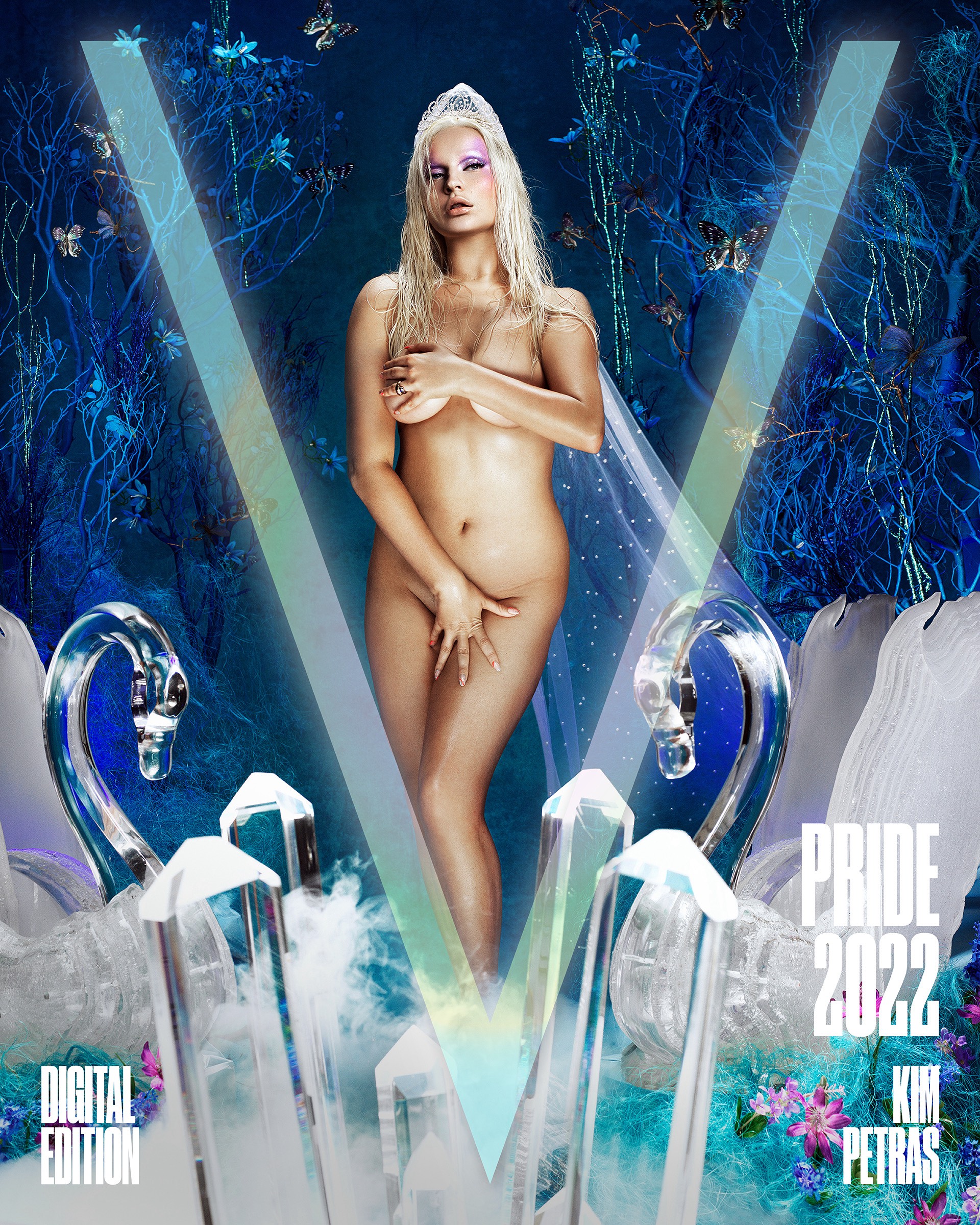
But despite the ups and downs, she could always rely on music to help her get through it. “I feel like that’s the thing that connected me with music because I could just talk about my feelings and not about my gender,” she says. And after a few years of introspection and meticulously honing her craft, Petras broke out onto the scene with her 2017 track, “I Don’t Want It at All.” Not one to shy away from her true self, she’s made a name for herself as someone who’s always been unapologetically her – in life, but also in music. Her latest EP, Slut Pop is a good example of this, where Petras breaks down the stigma behind sex and instead encourages sex-positive thinking and empowerment.
“It’s supposed to make you feel good about yourself,” she elaborates. “But I also wanted to take away the shame of the word ‘slut’ or sleeping with whoever you want to sleep with.”
The EP brims with infectious, sensual beats that, when seen together, liberate and free the listener of societal expectations. At once, the singer is singing about people sliding into her DMs, while other times, she’s raving about phone sex. And while Slut Pop is only 15 minutes in run time, it is the perfect project to hold over her fans until her next release. When we hopped on a call with Petras earlier this month, we made sure to ask her about her new creative pursuits. She teased that she was currently in the studio, prepping for the release of a new single. And while she didn’t spill too much, she did share that the new project will touch on new themes, as she’s not one to repeat herself. “It’s a new chapter, and I love a concept record – so it’s definitely that. That’s all I’m going to say,” Petras laughs.
In the intervening years since her breakout track and most recent EP, Petras has escalated to the upper echelons of pop stardom. Now, not only is Petras one of pop’s most buzzed-about musicians but she’s also cemented herself as an icon for Trans women and the LGBTQ+ community at large. And that brazen embodiment of herself and her artistry is what makes her poised to take over this year’s Pride cover.
For more on Petras, her musical journey and latest EP, read below.
V MAGAZINE: Hi Kim, thanks for being with us. I read that you’re headlining NYC Pride at Governor’s Island this month, how exciting! What can fans expect from your performance?
KIM PETRAS: I feel like New York is where my career started, especially in Brooklyn, in gay bars. That’s where my music was first played. So for me, it’s always special to play in New York. But headlining Pride is the next level–it’s like a f*cking dream. I think it’s going to be really magical. The crowd in New York is always the absolute best so we’re just going to really celebrate.
V: Yeah, I can imagine! The lineup looks insane, too. How would you describe the energy of New York?
KP: I’m someone who’s from a tiny town in Germany and I never felt like I fit in. But I was like, “One day I’m going to move to New York and people are going to understand me there.” I feel like a lot of my fans felt the same way–they’ve moved to New York from places where they weren’t accepted. So I feel like, with the fans and the people that are there, I can really relate to them. I feel like I’m on the same page as them. So yeah, New York is my favorite place in the world to perform in.
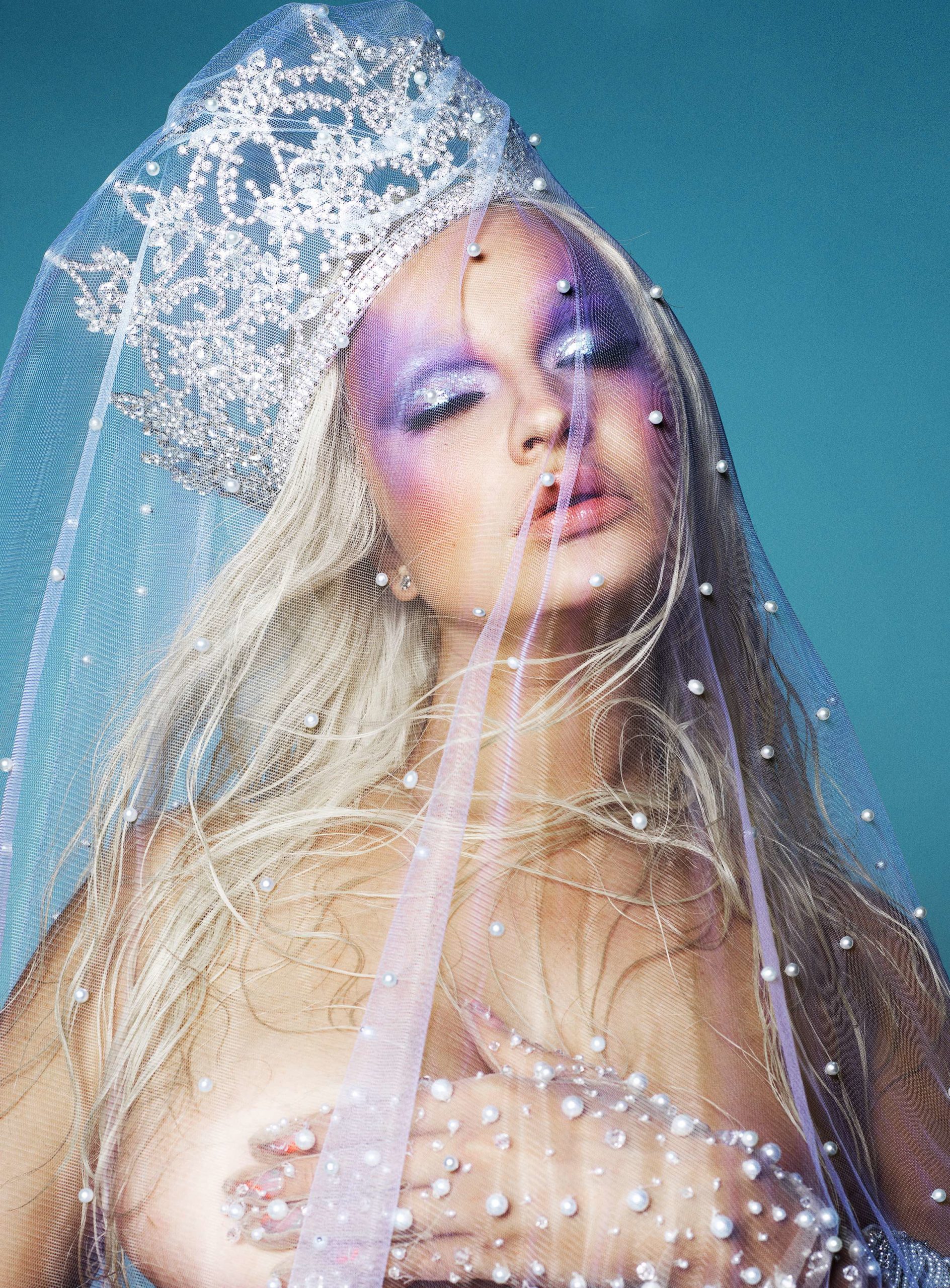
V: I also know you had an explosive performance at Coachella, so how do you usually get ready for performances like this?
KP: For Coachella. I’ve been planning it for years. Then, I think two or three months before, I rehearsed and really put a lot of thought into every single moment. I’m someone who likes to do things over and over again until they’re perfect. I kind of center my whole life around how can I be the best performer that I can be?
V: I saw clips of it online and it looked amazing. I also know a few weeks ago you were invited by Christina Aguilera to perform at LA Pride. How did that come to be?
KP: It happened because we have the same hairstylist [laughs]. He played my music for her and she loved it. She looked into me more and invited me to come up with her for that segment of the show. I think she has an incredible voice and I love Stripped. That was such a moment and that album was really really special to me and so many people. It was really magical. [With my look] I just wanted to give you a look at what Dirrty Christina would wear now. I just enjoyed singing with a legend. It was sick.
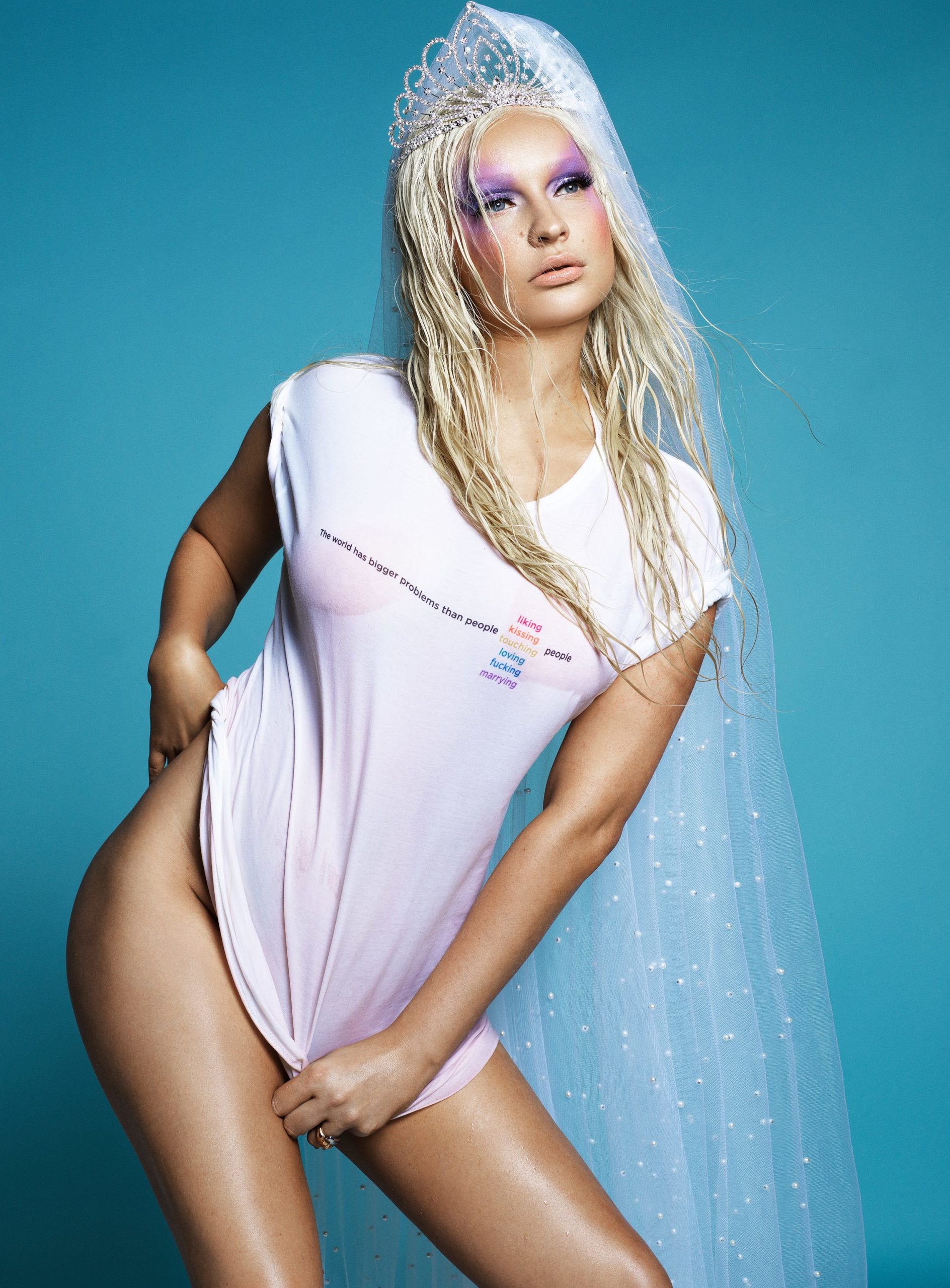
V: And earlier this year you released Slut Pop. I read in a HuffPost interview that “music is about your feelings and your fantasies and it goes deeper than your gender and your sexuality.” Can you elaborate on this? How does music serve as an extension of yourself?
KP: Yes, absolutely. I struggle to fit in still and I think that’s the feeling that Trans people still feel. Like, “Okay, where do I fit in in the world? And how do I make people see me as not this crazy thing, but as a person?’ For me, I see people equally. I don’t judge people by gender. I don’t label people by gender. That’s a concept to me that’s so old and bad to just define people by their gender and their sexuality. I take every person as they come and I think every person is unique and their own creation. So for me, music I think was the one thing–every human goes through the human experience and has emotions and feels things and heartbreaks. And I feel like that’s the thing that connected me with music because I could just talk about my feelings and not about my gender. I transitioned a long time ago and at the time, it was all anybody would say about me. It was like, the only thing I was to anyone was Transgender when I was a kid. I feel like music was the one thing for me that made me human and make me have feelings. My room of being a really good songwriter started in my room out of that emotion, wanting to connect to people. I still feel like music is the one thing that really connects me to other people. It’s an equalizer. If your music is good, it’s good. It doesn’t matter what gender or sexuality or skin color you have. That’s what I love about it.
V: And when you sat down to write, Slut Pop, what were your intentions? What did you want to imbue with that project?
KP: Well, first of all, I love electro, club music. I feel like I was raised in gay clubs in Germany and techno and rave music has been my sh*t since I was a kid. All I wanted to be was a raver. So I think the sound was the first thing. I just wanted to make stuff that sounded like that and took me back to when I fell in love with club music. And then as the concept developed, it became a lot about the shame that people have about their sexuality. For me, it became a lot about being Transgender. Because for many of my friends and people that I’ve met, sex work was the only option to be able to transition. Had I not had parents that supported me, I would have probably gone the same route because you get kicked out if you’re not accepted, then you’re homeless. It’s supposed to be fun. It’s supposed to not take itself too seriously. It’s supposed to make you feel good about yourself. But I also wanted to take away the shame of the word “slut” or sleeping with whoever you want to sleep with. It’s hard because, at the end of the day, it’s just supposed to be fun. You’re supposed to put it on and have a blast. But there was also that intention of not feeling ashamed.
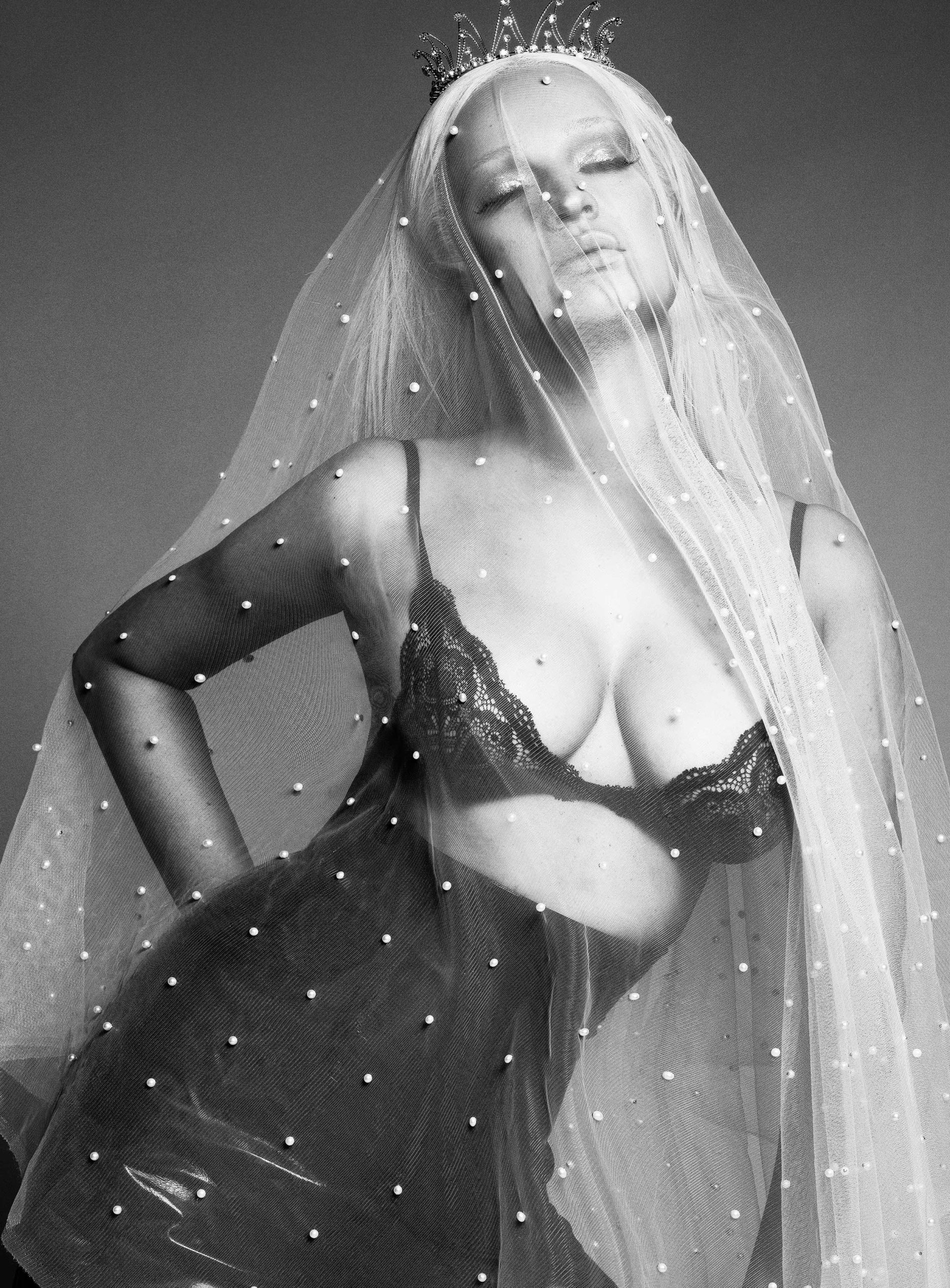
V: For sure, I think it’s a powerful statement that resonates through all of your work. So what do you kind of love most about what you do?
KP: I think at the core of everything, I’m a songwriter. I think that’s what sets off everything else. It’s always the song first and that’s what I’ve done for years–starting in my bedroom rather than in studios. But the performances are also really special because it’s when all of those things come to life. I see the outfits when I write the song, I see the music video, I see the show. But at the core of myself, I’m just someone who really loves songs and music and who lives with music constantly on. I never really stopped looking for concepts and melodies and all of that.
V: And as you’re the cover star of our pride issue, what does pride mean to you?
KP: Pride to me means celebrating the community that I grew up in. It means celebrating the people in my life, who without them I would have been really lost. The only friends I had as a teenager and kid were gay guys. They were the only people who were okay with me transitioning and could see past that. I set out to make music for my community and make what I want to hear.
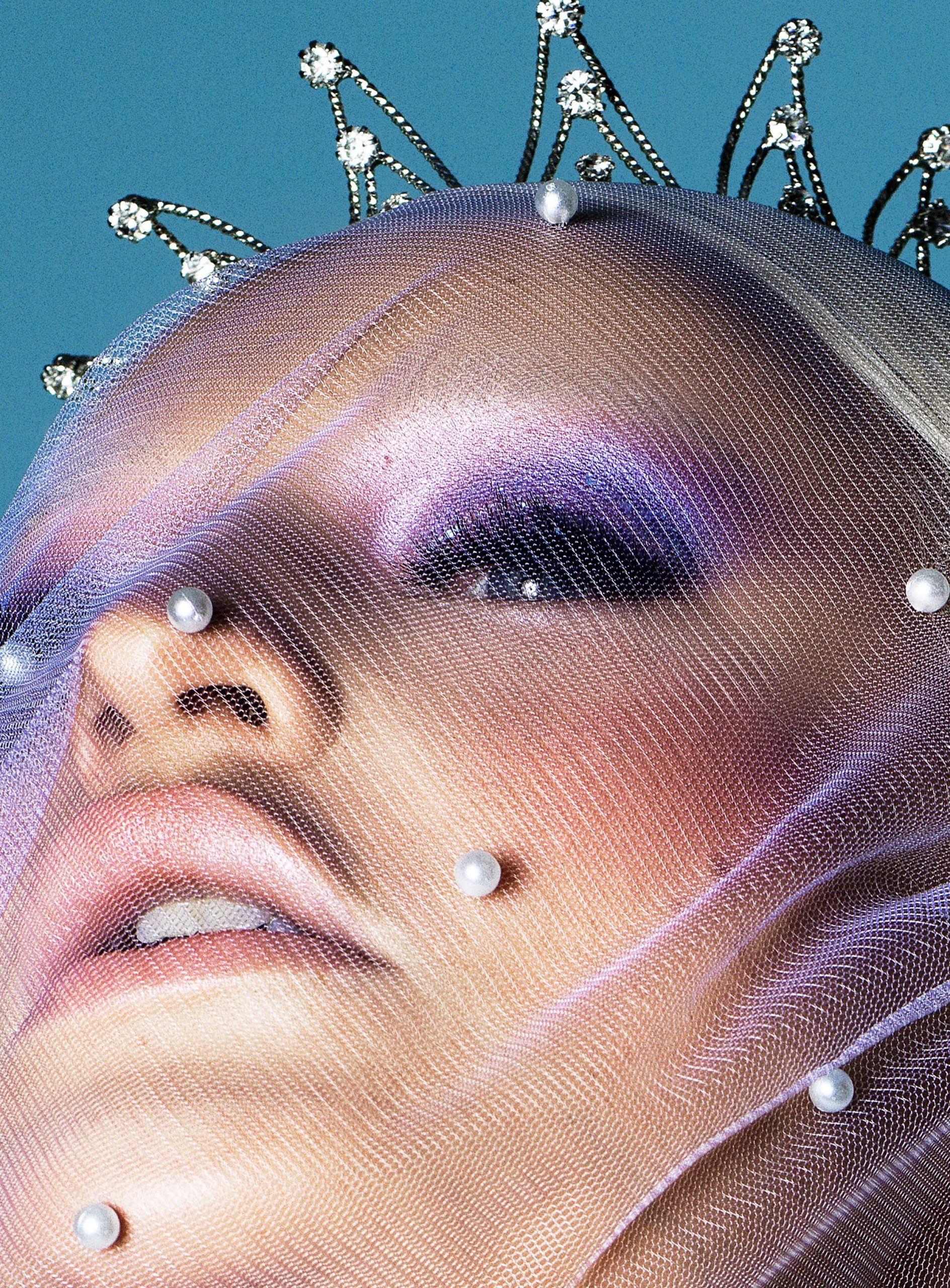
V: For you, what’s the importance of Pride month?
KP: Pride is important because it’s important to lift each other up, think about your community, hug your friends, be proud of yourself and keep going.
V: Do you have a favorite pride memory?
KP: Honestly, I would say playing my first Pride show in LA. It was a very big stage. It was in West Hollywood and it was like the first time I really felt like, “Whoa, something’s happening in my career. There’s a big crowd that knows my songs and all of that.” That was really cool.
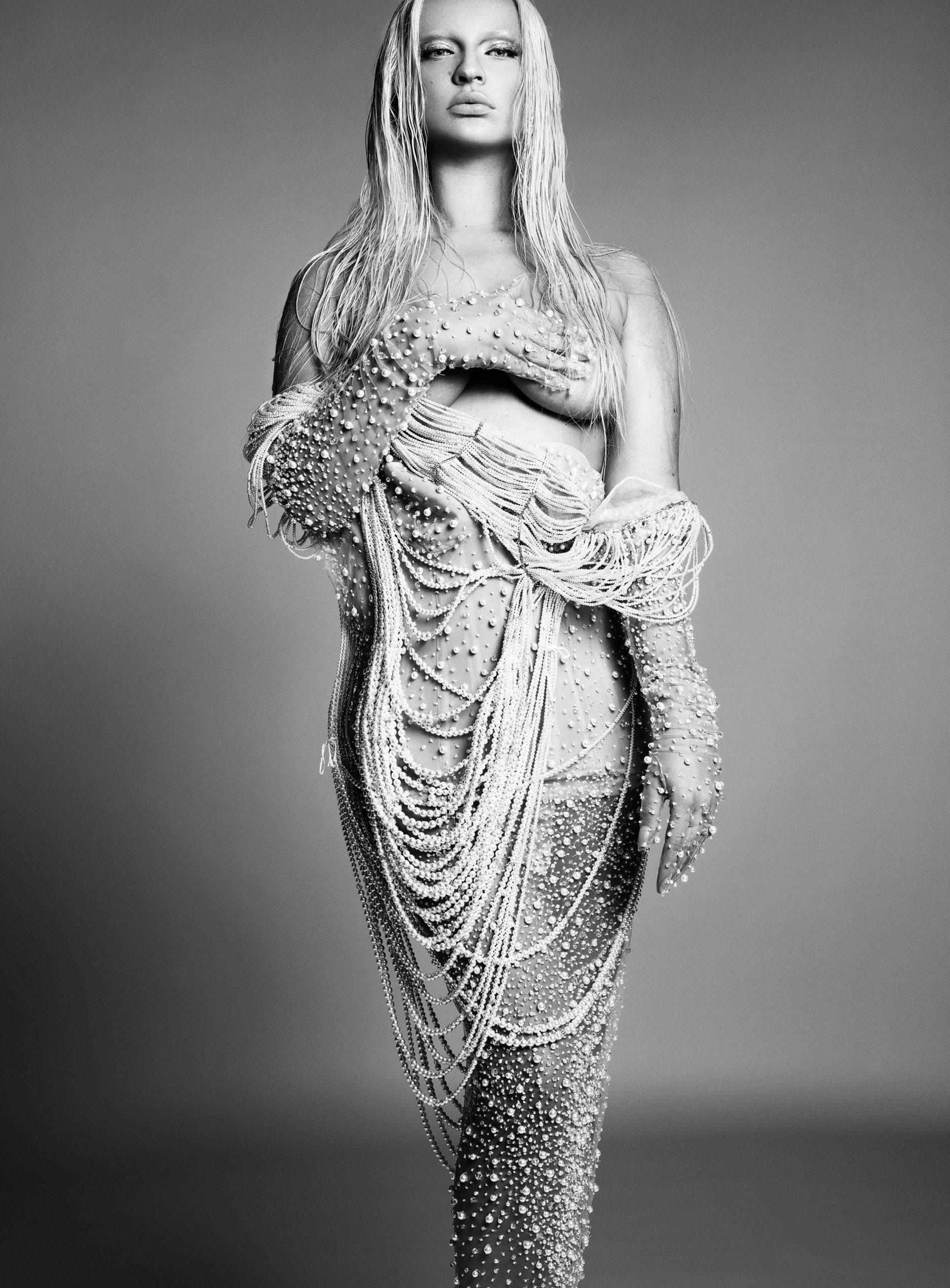
V: And you’ve been such an icon for Trans women and the LGBTQ+ community at large. Do you mind sharing with readers how you were able to come to terms with your gender and sexuality?
KP: I think you’re ever-evolving as a person. I knew very, very young that my brain didn’t match up with my body. It was a lot of struggle and self-hate. Then once I did my full transition, I felt like my life started once all of that was over. I’m just happy that I’m alive and that I get to be who I want to be and get to make music. None of that was really something that I had as a kid to look up to.
V: Who did you lean on to help you get through it all?
KP: When I was transitioning, it was my mom. My dad eventually understood and did everything he could. But initially, to my dad, it was a very, very foreign concept because he didn’t want me to have a hard life. And my mom saw me and when I was suicidal at a very young age, was like, “I’m going to help you get this right. You deserve to live.” I’m so grateful for my mom always. Because without that one person believing you it’s pretty grim and that’s why there’s so much suicide still in the Transgender community. Also, I think once I got a little older, I also leaned on my chosen family and my friends who were also different, didn’t quite fit in, and had the same struggles as me. My team is also my family now. I’ve traveled with them for like six years and started out doing the tiniest shows. Now, we’re doing big venues. Everyone needs people who believe in you, so shout out to them.
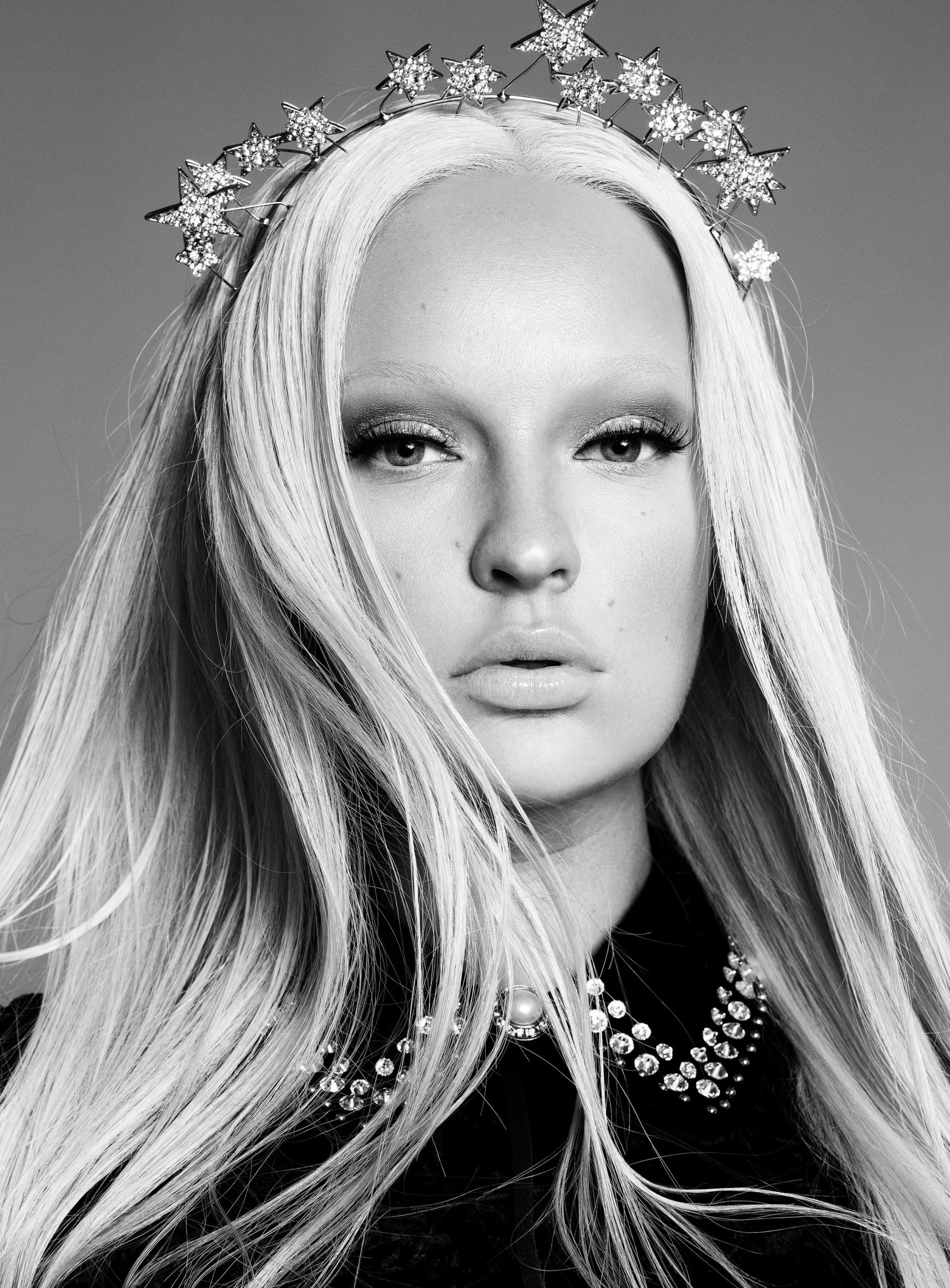
V: Who were your icons?
KP: RuPaul and Amanda Lapore.
V: Do you have any advice for people who might be scared or struggling to be open about their sexual or gender identity?
KP: I would say there are no rules, like with everything in life. Don’t pressure yourself to be like someone else. Everyone is on their own time and whatever you feel is right is right. Everyone’s on their own path. Just listen to yourself and trust yourself. It’s up to you if you want to share that with the world or if you want to wait.
V: And what’s next for you? Are you writing new music?
KP: I’m always writing songs. I’ve been writing songs I think for the last four months, like every day when I’m not performing. So I have so much music right now, which is exciting and good. But also I’m still building as I go, and I feel like an album is never really done until it’s the last minute to hand everything in. So until the last minute, I’m going to keep working on it. Music is the thing I care about most, but I just did my first acting gig, which was so much fun and there’s going to be more about that soon. I’ve also always loved fashion a lot. I’ve always sketched in school and got in trouble for that. So eventually, I would love to make things that I come up with. But right now, I’m mostly about the music and performing. That’s where my head’s at.
V: What can we expect from the new music? Similar themes or different ones?
KP: I don’t like to repeat myself. So yes, there are new themes. I like to evolve and I feel like right now I had a moment of change. Like the music that I listened to changed, the clothes that I wear changed and everything feels different. So yes, it’s a new chapter and I love a concept record–so it’s definitely that. That’s all I’m going to say.
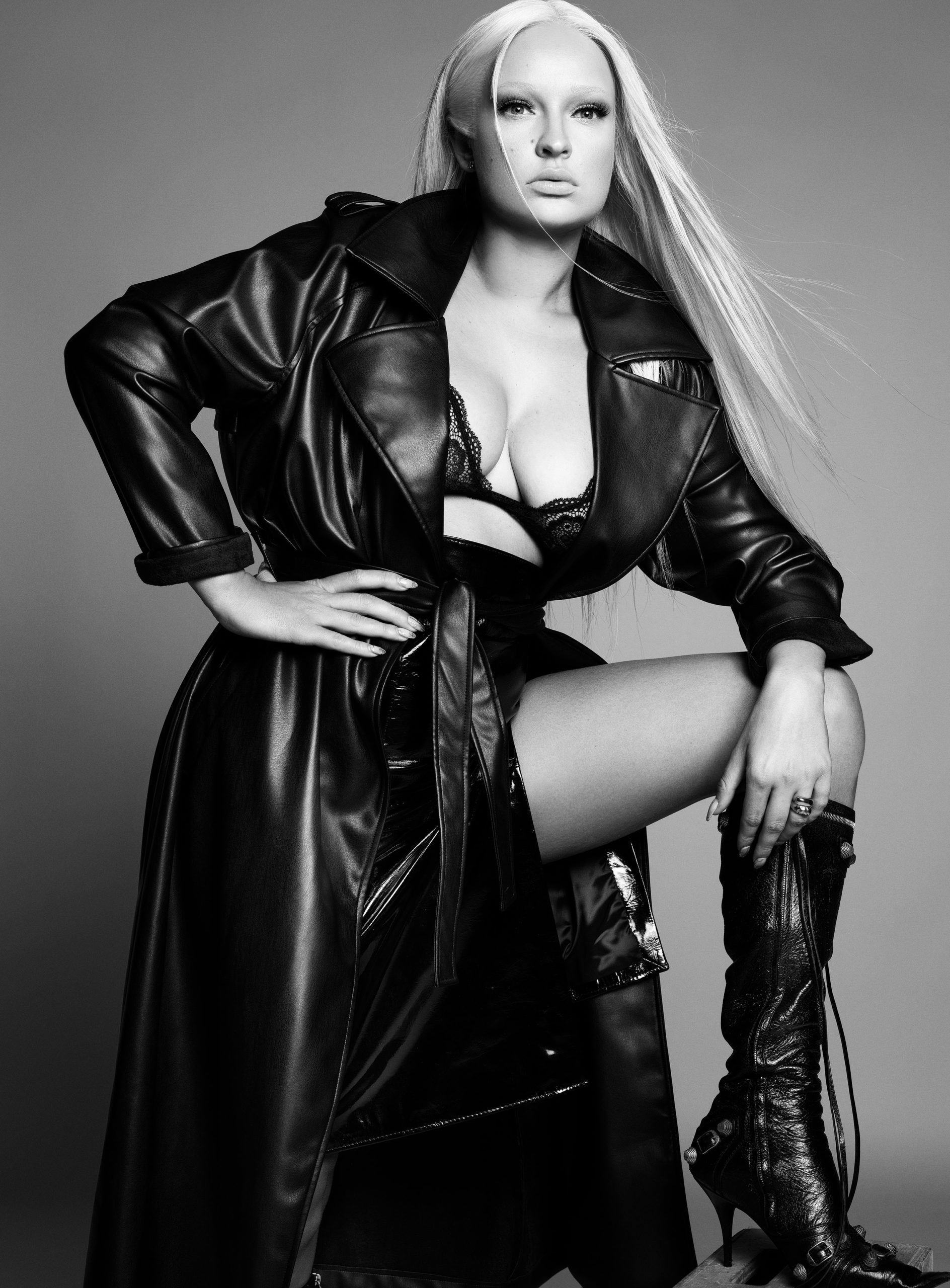
Discover More
